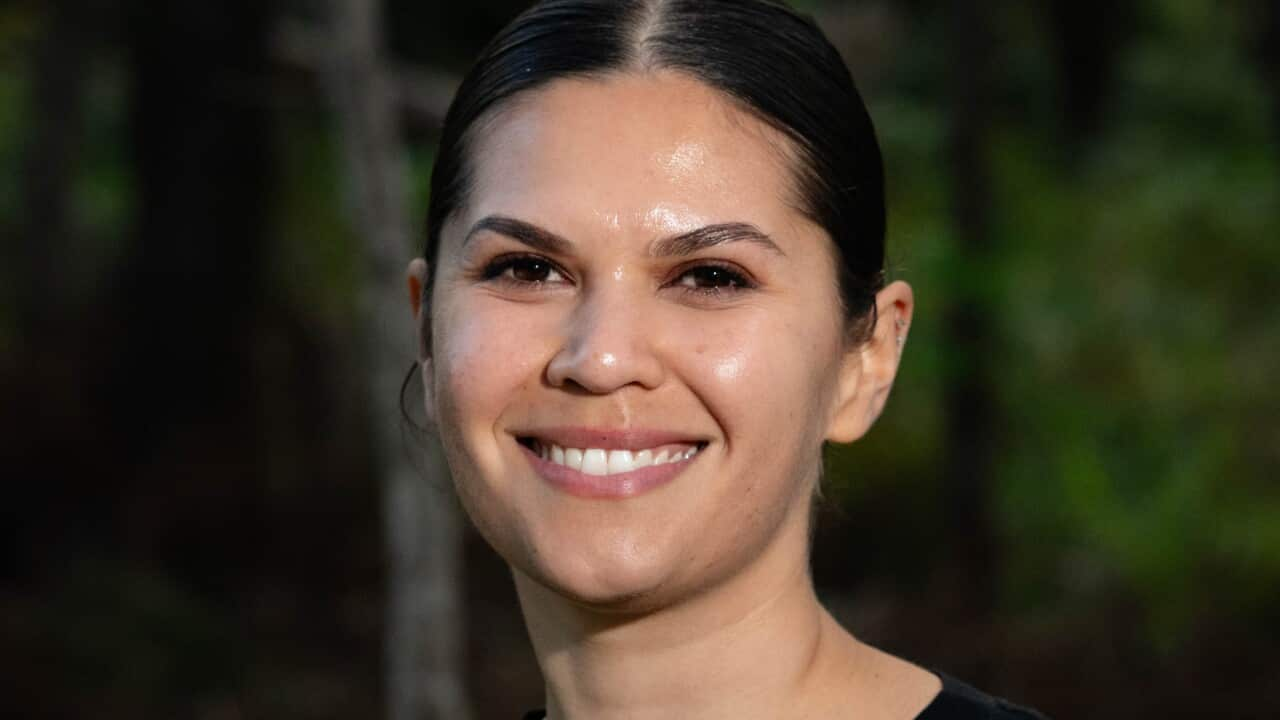In prison, it's not all yoga and rehab. It's a very dangerous place.
Man, I spent a number of times going in and out of custody as a juvenile for a range of different offences. Some of them would be like two weeks, some would be up to eight months, some were six months.
I am still trying to process how I ended up going from playing footy and going to school to taking drugs and committing crimes, and now I'm going to spend a night in a juvenile prison.
And them [guards] not even see my vulnerability, but just to go through the motions and say you know, ‘Come step over here. Take your clothes off. Turn around. Stand here. Spread your legs.’
It was one of the most traumatic experiences being put in front of total strangers who didn't give two thoughts about what I was experiencing and just made that experience even worse.
My childhood wasn't a childhood that I want to remember. There was a lot of violence in my community at that time. There was a lot of drugs. There was a lot of police involvement and there was a lot of unemployment.
There was a lot of violence in my community at that time. There was a lot of drugs. There was a lot of police involvement and there was a lot of unemployment.

Keenan as a child. Source: Keenan Mundine
And then throw in the mix that I lost my mum.
I was about seven or eight, so really young and it was a really difficult time. I don't remember my mother's funeral. I remember my father's because we had to go back to Cherbourg and bury him.
They passed away within a year of each other. At school, I got teased and bullied a lot.
At school, I got teased and bullied a lot.

Keenan Mundine (left) with his brothers and grandparents, in Cherbourg, Qld. Source: Keenan Mundine
Before coming into contact with the police and the criminal justice system, I started experimenting with drugs and alcohol myself. That increased my risk-taking because I not only needed to feed myself and clothes myself, I needed extra funds to be able to support my drug intake.
I broke into a car for a laptop, when laptops were about 20 kilos! In the paperwork, I'd done more damage to the car than the value of the item I stole out of the car.
I wanted to sell that laptop and get some money, to put some food in my tummy and buy some new clothes. And then whatever's leftover to go and medicate myself.
I lost a lot of my self-esteem through that process, I lost a lot of self-belief.
I served about 2 years in jail in my prime. So when I was about 18, 19 and 20 years of age.
There was a lot of violence.
Man. From one-on-one fights, to people getting mobbed, to stabbings, to having the custodial staff commit acts of violence on prisoners.
I was like, I don't want to be here. I had a lot of time to reflect on my journey and my life and how my trajectory could have been changed and how a service could have intervened and supported my parents when I was a child.
I had a lot of time to reflect on my journey and my life and how my trajectory could have been changed and how a service could have intervened and supported my parents when I was a child.

Keenan Mundine (left) in prison, 2009. Source: Keenan Mundine
The key to my success was what every child gets from an organic home, and that's unconditional love.
A big part of me is giving back to my community.
It’s why I’ve made this video clip for other young people to watch and think about how to avoid contact with the police. Ultimately my advice is about keeping young people safe.
I went in when I was 14 years old, and I thought I knew things at 14. I thought I was strong.
I thought that nothing could, hurt me or impact me at 14 and I can only imagine what a 10-year-old kid would be going through, what an 11-year-old kid would be going through, sitting in a police cell with adult offenders beside them, some under the influence of drugs and alcohols, being belligerent and violent.
It was one of the most difficult experiences to go through, it shattered my vulnerability.
This is from my own experience. A few things to do, if you come into contact with the police.
Keenan Mundine is the founder, Deputy CEO and ambassador for Deadly Connections Community and Justice Services. is an Aboriginal Community Controlled, not-for-profit organisation that breaks the cycles of disadvantage and trauma to directly address the over-representation of First Nations people in the child protection and justice system/s.
Keenan's wife Carly Stanley is the CEO at Deadly Connections, and is a writer who also features in Incarceration Nation.
Deadly Connections place culture, healing, true lived experience, deep community connections and self- determination at the centre of all they do.
They embody and embed holistic, community- based, decolonising approaches to connecting First Nations people to their cultural, inner and community strength.
They advocate and collaborate to improve justice and child protection systems.
Keenan sits with Karla Grant for a conversation on Living Black on Monday 30 August at 8.30pm or watch the free stream on .










